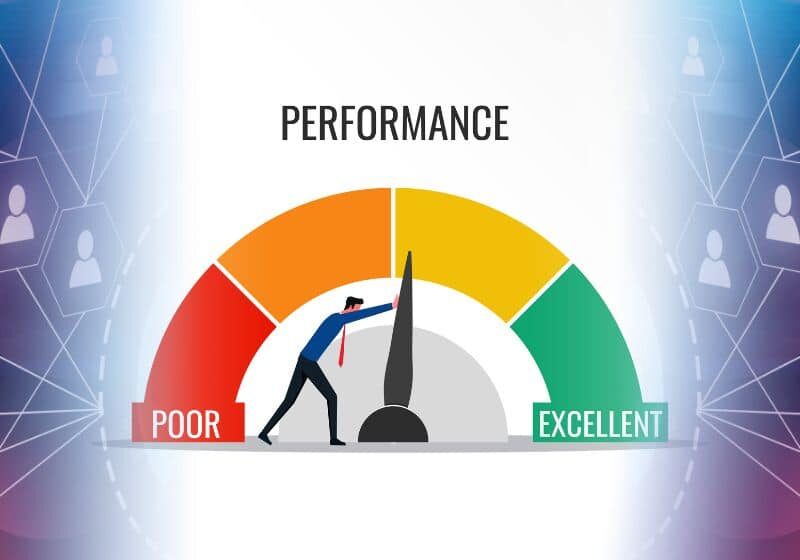Performance Management : Adapting to New Employment Laws

Does this sound familiar? You’re the owner of a small business that has grown from a team of five to twenty in the last two years. You’ve been so focused on growth that performance reviews have fallen by the wayside. Now, you’re noticing problems cropping up: deadlines are being missed, the quality of work is slipping, and team morale is at an all-time low.
Consider Jane, a talented marketing specialist who was once one of your star performers. Lately, she seems disengaged and her work has become inconsistent. You’ve received complaints from clients about errors in her projects, but you’re unsure how to address these issues effectively.
This situation is more common than you might think. Many small business owners struggle to manage employee performance without a robust review system. The lack of regular, structured feedback can leave employees like Jane feeling unsupported and unclear about expectations, leading to a decline in performance and job satisfaction.
The Real Value of Performance Management
Many employers view performance management as a time-consuming and bureaucratic exercise that yields little tangible benefit, especially for small businesses . However, this perception is rooted in several misconceptions.
One common myth is that performance management is merely an annual review process; in reality, effective performance management involves continuous feedback and development.
Another misunderstanding is that it only benefits employees, whereas a robust performance management system aligns individual performance with organisational goals, driving overall business success. Additionally, some believe that it fosters a negative, punitive environment, but when done correctly, it can enhance employee engagement, motivation, and retention by recognising achievements and addressing growth areas constructively.
With the new Labour Government’s proposed changes to employment law, such as day-one rights for unfair dismissals, the importance of having a thorough performance review process has never been greater. For businesses without a dedicated HR department to spearhead the process, managing employee performance can fall to managers and this can seem daunting, yet it remains essential.
Performance reviews have long been a cornerstone of effective employee management and with the anticipated changes, business owners and managers alike must adapt to new regulations and rethink their performance management strategies to stay compliant.
Whether starting from scratch or refining current practices, this article provides the tools and knowledge needed to manage performance effectively in your business.
What Robust Performance Management Looks Like for Managers
A modern, robust performance management system for managers transcends the outdated annual review model, focusing instead on continuous, real-time feedback and development.
It involves setting clear, achievable goals aligned with the businesses overall objectives and regularly monitoring progress through frequent check-ins.
Managers who engage in ongoing dialogue with employees, providing timely recognition for achievements and constructive guidance for areas needing improvement will help address issues as they arise, ensuring that employees are aware of their performance in real-time and can take corrective actions promptly.
Robust performance management emphasises employee development through personalised coaching, skill-building opportunities, and career growth plans. Every manager should encourage continuous improvement and open communication, and in so doing enhance employee engagement, productivity, and overall job satisfaction, ultimately driving the businesses’ overall success.
Preparing Managers for Implementing Robust Performance Management System
Managers looking to implement a robust performance management system must recognise that while the process demands time and effort, the long-term rewards are well worth it.
The first step is to establish clear, measurable goals that align with the business’ objectives.
Managers should then create a structured plan for regular check-ins, ensuring that feedback is timely and continuous rather than limited to annual reviews. Effective communication is crucial; managers must be transparent, approachable, and consistent in their interactions with employees.
Not all managers know what to do and should invest in their own personal growth by training to develop their own coaching and feedback skills, creating a supportive environment where employees feel valued and motivated to improve.
Communicating the Why: Sharing Business Objectives with Employees
Once a manager decides to implement or refine a robust performance management process, the next critical step is to effectively communicate the underlying business objectives to employees. This can be done by the business owner, managing director or collectively as a management team.
This may involve presenting the company’s vision, goals, and strategic direction, helping employees understand the ‘why’ behind the changes. A well-crafted presentation can serve as an excellent platform to share this information, highlighting how the performance management process aligns with and supports the business’s mission.
Clearly articulating the purpose and benefits of the new system, managers can nurture buy-in and engagement from their team. Employees who see the connection between their individual performance and the broader company goals are more likely to be motivated and committed to their roles. This transparency not only demystifies the performance management process but also empowers employees to contribute meaningfully to the company’s success.
Taking the Next Steps: Implementing and Sustaining the Process
After communicating the business objectives and the rationale behind the new performance management process, the next step is to implement the system effectively and ensure its sustainability.
Managers should start by providing training sessions to both themselves and their teams, focusing on the tools and techniques that will be used in the performance management process. This might include workshops on giving and receiving feedback, goal setting, and using performance management software.
It is absolutely crucial to establish a regular schedule for performance check-ins and reviews, making sure these are integrated into the team’s routine. Managers should also create a culture of continuous improvement by encouraging open dialogue and getting (as well as giving) constructive feedback on the performance management process itself, making adjustments as needed.
Managers should ensure that the performance management system is not only implemented smoothly but also remains effective and beneficial in the long term.
Don’t Let Performance Reviews Fall into the ‘Can’t Be Bothered’ Category
Let’s face it, performance reviews shouldn’t be lumped in with those ‘can’t be bothered’ tasks like cleaning out the office fridge or organising the stationery cupboard. They are far more important and impactful. Skipping out on performance reviews is like trying to run a marathon with your shoelaces tied together – it might seem easier at first, but you’ll quickly find yourself in a tangled mess.
Investing the time and effort in robust performance management is crucial for unlocking your team’s full potential and steering your business toward success.
Sustainability is key: keep it simple but effective. Making it complicated, will easily allow it to fall into the ‘cant’ be bothered’ category!
Setting Up a Performance Management System
Setting up a performance management system doesn’t have to be complex. Managers can establish effective systems that align with business goals:
- Set Clear Goals and Objectives: Align employee performance with business objectives and create personalised SMART (Specific, Measurable, Achievable, Relevant, and Time-bound) performance objectives for each employee.
- Define Performance Criteria and Standards: Establish specific criteria to measure employee performance, ensuring consistency across similar roles.
- Regular Performance Review Meetings: Schedule consistent performance review meetings, with more frequent evaluations for new recruits during the probation period.
- Importance of Documentation and Record-Keeping: Document performance reviews, feedback, and development plans to ensure accountability and provide evidence if challenged.
Final Thought: The Importance of a Robust Performance Management System
With the new Labour government enhancing employee rights from day one, implementing a robust performance management system has never been more critical.
This proactive approach not only ensures that employees are aligned with the company’s goals and continuously developing but also serves as a vital safeguard for businesses. By maintaining clear documentation and regular feedback, companies can protect themselves against potential disputes and demonstrate their commitment to fair and effective management practices.
Investing in a strong performance management process is not just about driving success; it’s about securing the future of your business in an evolving regulatory landscape.
How HR:4UK Can Help?
At HR:4UK, we understand the challenges that small business owners and line managers face, especially when it comes to managing performance and staying compliant with evolving employment laws.
Our team of expert advisors are here to support you every step of the way. We offer comprehensive performance management solutions tailored to your business needs, including tools for conducting effective performance reviews, templates for documentation, and guidance on understanding the implications of the new Labour Government’s proposed changes to employment law.
With HR:4UK, you can have peace of mind knowing that we will ensure fair, transparent, and compliant performance management practices that drive your business’s success.
Contact us today to learn how we can help you implement or improve your performance management process.
Angela Clay
A qualified employment law solicitor and our managing director, Angela has unparalleled legal expertise and decades of experience and knowledge to draw from. She’s a passionate speaker and writer that loves to keep employers updated with upcoming changes to legislation, and is a regular guest speaker on BBC Leicester Radio.




